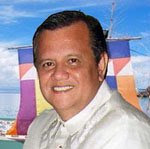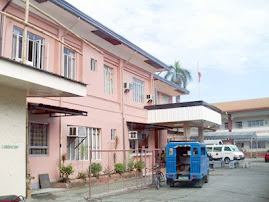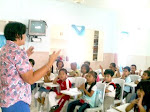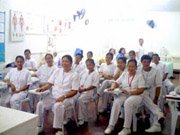It was the first Secretary of Health, Dr. Jose Fabella, who enlisted women's clubs to help him organize puericulture centers all over the country and help raise funds for the support of the centers. The first actual center to serve babies and mothers was set up in 1905 by a group of women led by Concepcion Felix, wife of Felipe Calderon, author of the Malolos Constitution. The women called the center La Gota de Leche.
In 1911 when the Hospicio de San Jose was organized to house orphans, babies
were cared for, too. Another organization, Liga Nacional Filipina, was seriously working on the reduction of infant mortality, which was 350 deaths for every 1,000 babies born.Dr. Jesus Gabiera in 1913 organized the first formal puericulture (pueri means child and culture means care of).
ACT NO. 2633 (AN ACT APPROPRIATING THE SUM OF ONE MILLION PESOS FOR CERTAIN WORK IN RELATION TO THE PROTECTION OF EARLY INFANCY IN THE PHILIPPINE ISLANDS, INCLUDING THE ESTABLISHMENT OF "GOTAS DE LECHE")
In 1916, Act No. 2633 was enacted, directing health officials to organize puericulture centers all over the country. By December 21, puericulture centers had been set up in the provinces. In 1921, the Public Welfare Commission was tasked to supervise and organize puericulture centers. It was mandated that all centers should have a doctor,a nurse, a midwife and a social worker, all to be paid by the government.
Between 1921 and 1926, Fabella mobilized members of the National Federation of Women's Clubs of the Philippines (NFWCP) and put in place 329 puericulture centers in the country. On February 25, 1961, Paz Mendoza Catolico of the NFWCP, with the support of then President Carlos Garcia, organized the National League of Puericulture and Family Planning Centers at a national convention in San Sebastian College in Manila. After 1961, the World Health Organization, the United Nations Children's Fund,construction of puericulture center buildings.
When Imelda Marcos was governor of Metro Manila, all the puericulture centers in the area were administered by the Metro Manila Commission. Today, pueriuculture centers and the women who used to run them are surviving, but barely. Politicians took advantage of the disarray after the EDSA revolution of 1986. Some took over the buildings and supervision of the centers, while others removed the name puericulture center on billboards and replaced them with day care and health centers. Today, there are 380 active puericulture centers all over the country, including 80 in Rizal and Metro Manila.







.jpg)
.jpg)


